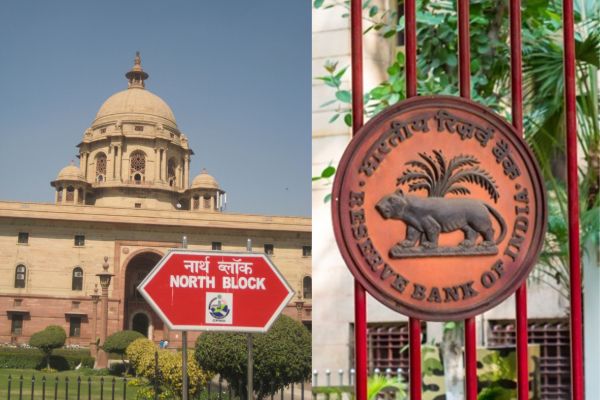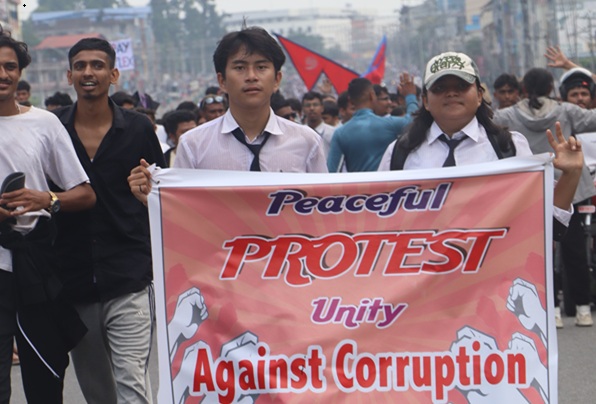.png)
Sarci-Sense: About Silent Goodbyes & How Middle-Age Friendships Disappear
In a world where ‘connection’ is measured by likes, emojis, and quick replies, the deepest friendships are quietly slipping away. This is the story of those silent goodbyes, and the cost we often don’t see until it’s too late.


By Srinath Sridharan
Dr. Srinath Sridharan is a Corporate Advisor & Independent Director on Corporate Boards. He is the author of ‘Family and Dhanda’.
August 24, 2025 at 9:02 AM IST
It’s a Sunday evening, and I’m staring at my phone, thumb hovering over a green chat icon. A friend I haven’t met in three years, someone who once knew my every mood before I could even name it, has sent me a meme. I ‘react’ with a laughing emoji, the digital equivalent of a polite nod. The last time we had an actual conversation, the Prime Minister was still in his first term. We have not fought, nor disagreed; we have simply let the friendship drift into that strange cloud-storage zone where it still exists, but no longer runs in real time.
It happens slowly.
At first, you miss a birthday call or forget to wish anniversary, because the day ran away from you. Then you stop sharing life updates unless they’re fit for public Instagram consumption or college group update. WhatsApp groups turn into meme-museums, which are dusty halls where no one actually talks. One day, you realise you know more about a friend’s new sofa or bungee-jumping holiday from their ‘Stories’ or ‘Reels’, than from their voice.
There is no “break-up” conversation, no dramatic farewell; middle-aged friendships don’t collapse, they evaporate, in plain sight.
Some friendships don’t end with slammed doors or long, bitter silences. They don’t announce their departure with a final coffee that feels like a court hearing. Instead, they fade - so gently you barely notice the colour draining from them. One day you scroll past a friend’s update with no urge to comment, and months later you realise you haven’t met them in person for over a year or sorry, was it four ?
As children, our safety net is woven almost entirely from the threads of our parents’ care, but somewhere in adolescence the loom changes. Friends begin to take up more space in our days and more weight in our emotional lives. They are not just companions for mischief or shared homework but mirrors that reflect back who we are becoming. In their company, we test versions of ourselves, try on new opinions, rehearse confidence, and seek validation that families can’t always provide. The bond is different - more elective, more fragile, yet intensely formative - and it shapes not just our memories but our sense of identity.
What makes the quiet fading of friendships in middle age so poignant is that they were never merely optional extras in the first place. Early bonds are built on proximity and similarity - be it the neighbour, the classmate, the colleague who becomes the after-work confidant, but over time, they deepen into essential sources of perspective and companionship. To lose them, even gradually, is not just a matter of having fewer people to call on a weekend. It is a subtle erasure of one of the emotional support systems that once helped us know ourselves.
And it raises a sharper question: if we no longer hold on to those mirrors, how do we keep track of who we are becoming now?
It isn’t that we don’t care.
It’s that caring has been downgraded to something algorithmic. We ‘like’ a photo, ‘react’ to a forward, ‘wave’ on a birthday reminder. We tell ourselves we’re still connected, yet the truth is we’re feeding the relationship crumbs from the attention table.
In our twenties, friendship was built in long, aimless evenings and impulsive road trips. Now, in our forties or fifties, it’s squeezed between a work call that overruns and the Uber ride home.
We’ve turned friendships into Netflix subscriptions - keeping them until the recommendations stop pleasing us.
I hear it in other people’s lives too. A college batchmate, now a banker, tells me he still sends his best friend a daily good morning GIF - they haven’t met in nine years. A single parent in my neighbourhood laughs that the person she chats with most is the security guard, because her so-called “best friend” lives two kilometres away but is always “too busy.” These are not sad people.
They are us - practical, well-meaning, emotionally literate - and yet we have quietly outsourced human warmth to our devices.
The truth is, we are not just victims of circumstance - we are often the architects of our own loneliness.
We prioritise convenience over connection, mistaking a ‘like’ for a conversation and a birthday emoji for a visit. We can claim traffic, fatigue, or busyness, but sometimes it’s simply that we’ve allowed our friendships to move from the front room of our lives to the attic, where they gather dust until some milestone or crisis forces us to pull them down again.
Sociologists will tell you that friendships evolved as survival networks, built to share resources, raise children, and watch each other’s backs. Somewhere in the urban rush, those networks became convenience contracts - low-maintenance, low-interference, infinitely postponable. The middle-aged brain, already strained by work, family, and the steady drum of bad news, has little bandwidth left for keeping deep ties alive. And so we let the friendships shrink to fit the available space.
The worst part is we hardly notice the loss until it’s too late. A friend falls ill and you realise you don’t know the name of their doctor. Another moves to a new city and you only hear about it through a forwarded Diwali message. These moments don’t make us cry; they make us uncomfortable because they remind us of the silent choices we made to look away.
And yet, not all is lost. There is a peculiar sweetness in reclaiming a friendship - like finding a shirt you loved in your twenties that still fits. A few months ago, I called an old friend I’d been meaning to “catch up with soon” for six years. We met in a noisy café. For a moment, it felt like strangers meeting for the first time - and then the old rhythm returned. We laughed over the same stupid stories. We sat without speaking and it felt easy again. No app can deliver that.
Friendship, like fitness, doesn’t survive on nostalgia. It needs regular use, deliberate time, and a willingness to make the inconvenient choice. And maybe that’s the hardest part of all - not finding the friends, but deciding, again and again, that they are worth the drive, the traffic, and the disruption of our carefully optimised days. In the end, we don’t so much lose friends to age, as to neglect.
Yet, it’s not always painful nostalgia. Sometimes, the quiet quitting is a form of mercy for ourselves. The friend we once idolised in college or admired early in our careers may have changed - perhaps into someone tedious, or worse, difficult to be around. When admiration curdles into frustration, or warmth fades into disappointment, is it really self-inflicted pain to let go? Perhaps some friendships deserve their slow exit, freeing us to invest our limited time and energy more wisely. Acknowledging this doesn’t diminish the sadness of other losses - it simply honours the complexity of human bonds.
And there is a stark irony here: while technology promises to keep us closer than ever, it also hands us a convenient exit from discomfort, from effort, from the messy, demanding work of real friendship. We can “ghost” without confrontation, “mute” without explanation, “unfollow” without guilt. The digital age allows us to curate not just our social media feeds, but our lives - editing out the friction, the awkwardness, the unpredictability that genuine relationships require.
But in that edited life, what parts of ourselves are we losing? And how long before the quiet quitting of friendships becomes the quiet quitting of connection itself? After all, algorithm will never prioritise the people who truly matter - that job is ours.



